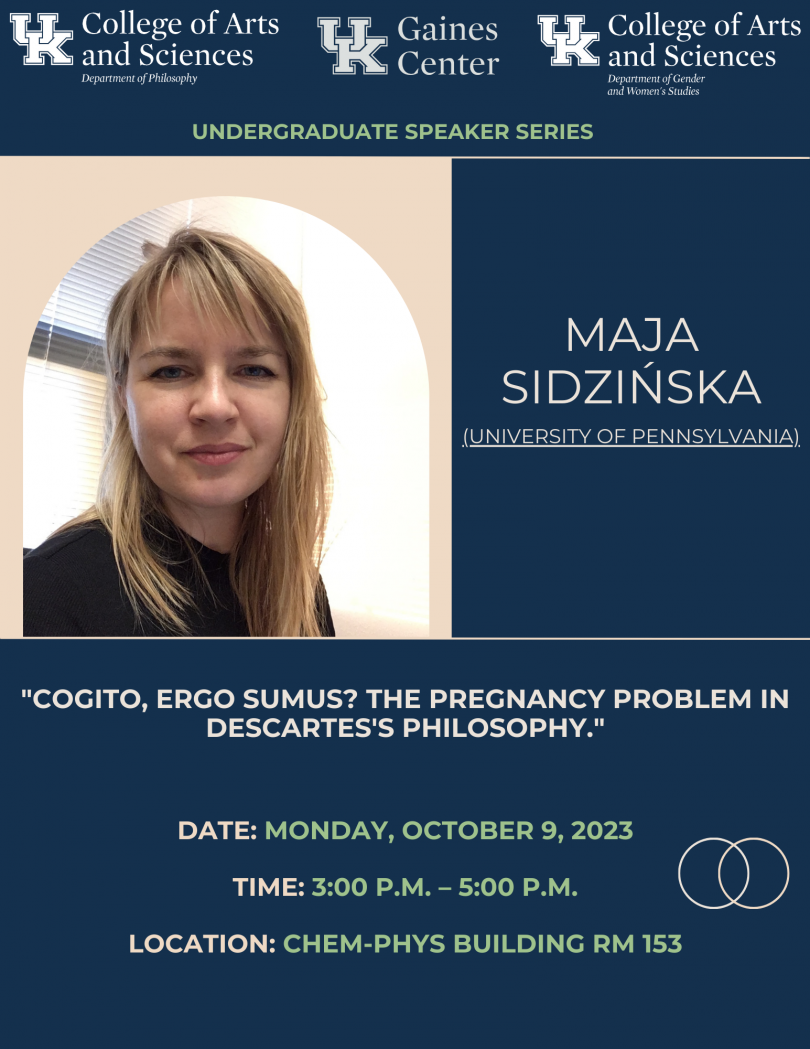The Philosophy Department in collaboration with the Department of Gender & Women's Studies and the UK Gaines Center for the Humanities is hosting our second undergraduate talk of the semester! Monday, October 9th, join us in Chem-Phys Bldg Rm 153 at 3pm! Maja Sidzińska from University of Pennsylvania is speaking on “Cogito, Ergo Sumus? The Pregnancy Problem in Descartes's Philosophy.””
Abstract:
Given Descartes’s metaphysical and natural-philosophic commitments, it is difficult to theorize the pregnant human being as a human being under his system. Specifically, given (1) Descartes’s account of generation; (2) his commitment to mechanistic explanations where bodies are concerned; (3) his reliance on a subtle individuating principle for human (and animal) bodies; and (4) his metaphysics of human beings, which include minds, bodies, and mind-body unions, there is no available human substance or entity that may clearly be the subject of pregnancy. The incompatibility of any of the three options found in commitment 4 with commitment 1, 2, or 3, together with other undesirable consequences should any be selected, results in what I call the pregnancy problem. The pregnancy problem is a previously unconsidered problem for the Cartesian philosophy. Given the pregnancy problem, commitment 1, 2, 3, or 4, or a combination of these would have to be revised for Descartes’s system to avoid a variety of tensions; alternatively, counterintuitive consequences may have to be accepted. Ironically, given Descartes’s interest in generation and medicine more generally, the Cartesian framework struggles to accommodate pregnancy in human beings. This may have implications for the systematicity and sex-neutrality of dualist metaphysics in general.

